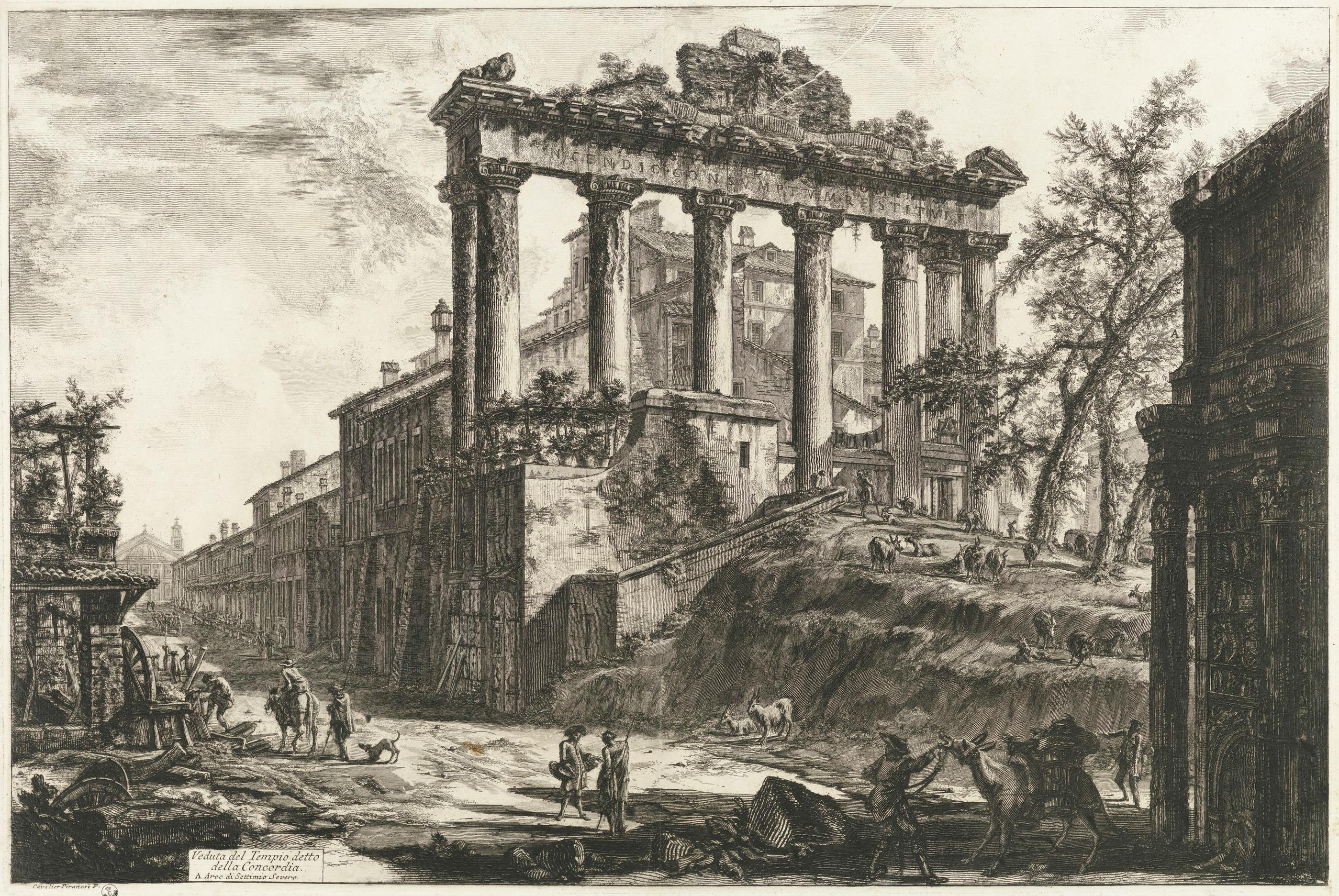View of the so-called Temple of Concord, in ‘Views of Rome’
Giovanni Battista Piranesi (Venice 1720 – Rome 1778)
With his Views of Rome, Piranesi gradually transformed the tradition of topographic engraving, together with its explanatory and educational worth, as can be seen in the works of Piranesi’s own teacher, Giuseppe Vasi. The result is a means of highly emotional expression, achieved through skilled use of perspective, to which he added the masterful dramatic effects of his exceptional technique as an engraver. This view describes the fringes of the Forum, or “Campo Vaccino”, the vicinity of which is even marked by the modern-day names of roads such as Via dei Foraggi or Via dei Fienili. The skilled fixing of a viewpoint, following a concept that refers to the overall involvement of the observer and the powerful diagonal view - emphasised by the way in which the light falls - guide the observer along a route in which the minute episodes of a kind of urban arcadia emerge, as important as the temple ruins and triumphal arches: goats grazing, an uncooperative donkey, washing out to dry, and pots of citrus trees on the terraces. Under a bright sky, where the use of engraving is considered as experimentation with print inks to create surprising “colour” effects, the frame excludes all views of the nearby Campidoglio, preferring to focus instead on a backdrop of buildings, still existing in part, on the eastern slopes of Mount Tarpeo.
